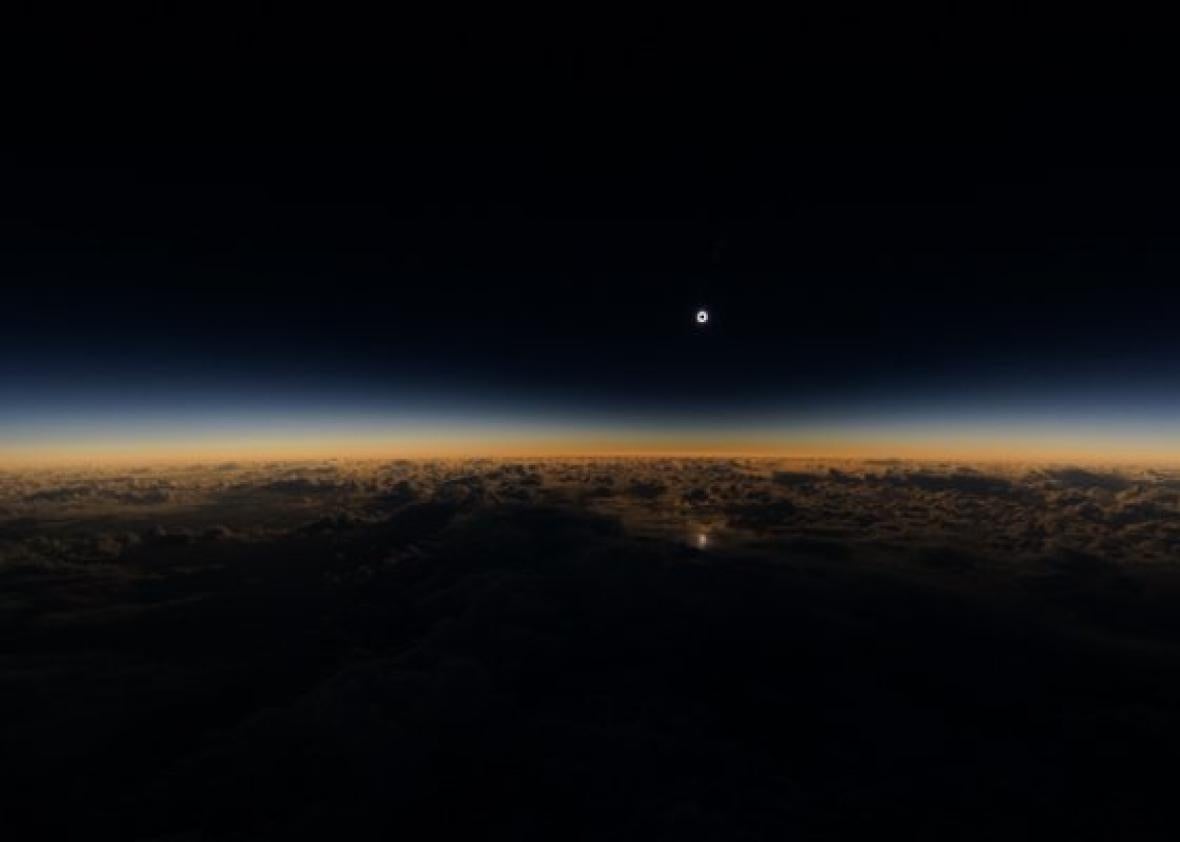On Tuesday, the moon passed in front of the sun, casting a shadow over remote sections of the Pacific Ocean: a total solar eclipse. Since not many people live in the middle of the ocean, to the rescue came Alaska Airlines, whose regularly scheduled flight 870 from Anchorage to Honolulu was intentionally delayed by about 25 minutes to perfectly coincide with the eclipse, so that those on board could see it with their own eyes.
The result is magical:
The video is great, mostly because you hear astronomer Mike Kentrianakis, an eclipse veteran, say “oh my God” 22 times in three-and-a-half minutes. Before the flight departed, Kentrianakis told Alaska Airlines that its decision to tweak its schedule was “an unbelievably accommodating gesture.”
In a Facebook post after landing, Kentrianakis said the experience was “one of the most exhilarating eclipses in my life.” He’s seen 10, but this was his first from the air. “It really was better than I could ever imagine and I imagined quite a bit,” Kentrianakis wrote.
It’s not totally unheard of for a plane to be in the path of a total solar eclipse. Eclipse fanatics often schedule charter flights to view eclipses over the ocean or in remote areas. Back in 1887, Russian scientist Dmitri Mendeleef even used a hot air balloon to outwit clouds and view totality.
So, yes, science nerds will go to great lengths to view a total solar eclipse.
Alaska Airlines estimates a dozen or so “eclipse chasers” were on board its flight, including Craig Small, of New York City’s Hayden Planetarium. From their blog:
In seat 7F will be Craig Small, a semi-retired astronomer from the Hayden Planetarium. This will be his 31st total eclipse, making him one of the “Big 4” eclipse viewers in the world. He’ll bring along his lucky eclipse flag, which has accompanied him on every viewing expedition since 1973 – and he’s never missed seeing an eclipse.
“I’m not one for hyperbole, but you don’t just see an eclipse, you experience it with every fiber of your being,” Small said. “It is the most spectacular naturally occurring event that anyone could witness in their lifetime.”
For the rest of us, we’ll get our chance on Aug. 21, 2017: The first total solar eclipse to sweep across the United States since 1918.
